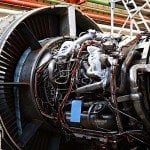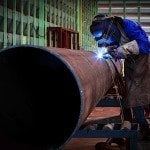The two western provinces of B.C. and Alberta are closer to finalizing terms on pipeline development after the two premiers, Christy Clark of B.C. and Alison Redford of Alberta, reached an agreement that satisfies five conditions insisted on by B.C. The agreement was reached today and announced by the two premiers. It does not mean that any pipeline projects will go ahead immediately. The biggest pipeline project to have been stalled because of the two provinces’ differences is the Enbridge Northern Gateway project.
The five conditions laid down by B.C. include the completion of an environmental review, the creation of marine spill response and land spill prevention mechanisms that would be “world leading,” and accommodation of aboriginal interests. B.C. also wants a “fair share” of the economic benefits of oil developments. This has yet to be negotiated, though it is accepted in principle.
B.C. in turn has agreed to support Alberta’s energy strategy.
A working group on energy issues will produce recommendations on how to open new markets for Canada’s oil and gas by the end of the year.
One major pipeline project that has been awaiting a resolution of the differences between the two provinces is Enbridge’s proposed Northern Gateway pipeline. That line would pump 525,000 barrels per day of bitumen from Alberta to Kitimat in B.C., from where it would be shipped overseas. The pipeline would be 1,177 kilometres long. It continues to face opposition from First Nations groups in B.C. and from environmental groups, as well as the province’s opposition NDP party.
Meanwhile, shipments of oil from Alberta to the United States by rail have been expanding, as the most controversial pipeline of all, the Keystone XL, awaits US government approval. According to CNBC, the rail shipment business is “booming” and is already responsible for moving most of the oil from the Bakken region in North Dakota. Canadian Pacific and Canadian National both report growth in demand for. CN has said that rail shipments will double, to 60,000 carloads of oil per day, by the end of the year.
By the end of next year, the combined rail capacity could grow from the present 150,000 barrels per day, to 700,000 barrels per day, from several major projects in the West. Keystone would carry 830,000 barrels per day.
Oil producers like Exxon and Imperial Oil are looking at constructing rail terminals to transport oil sands output from Alberta. A joint project of the two at Kearl, Alberta, is currently producing 100,000 barrels per day, an amount that will reach 345,000 barrels per day by 2020. Exxon said it would like to see Keystone built, though it has sufficient rail capacity for its present production at Kearl.


































